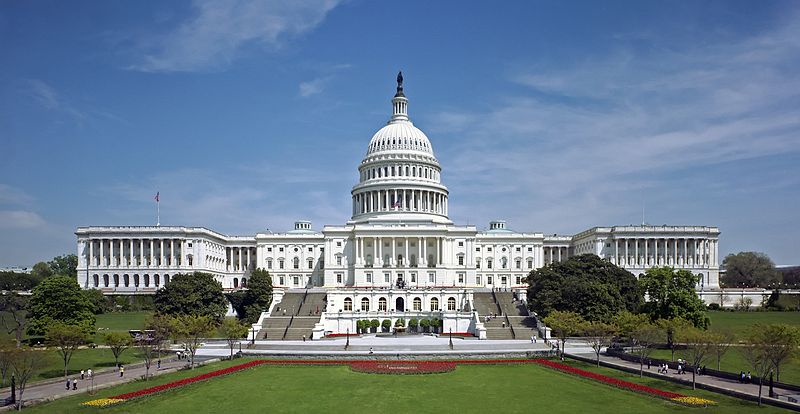
The Nuke Review, November 5 – November 13
Iran
A more pragmatic approach
Last week the Iranian Intelligence Ministry released a report warning of the potential costs of a military confrontation with the West and calling for a negotiated resolution to the standoff. The report states that preferable alternative to military conflict “is to take diplomatic and political measures and use the potentials of international bodies, which is a necessary and less costly option.”
Iran “hopeful” ahead of U.N. visit
In anticipation of a December 13 meeting with the U.N., Iranian Foreign Minister Ali Akbar Salehi stated that Iran was “hopeful… this meeting will identify a framework of cooperation in regards to the issue of a visit to Parchin.” Still, one Western diplomat was less sanguine, stating “Our initial impression is that there is no indication from Iran that they are prepared to engage any more or any differently…” The IAEA continues to voice concerns over Iranian activities at Parchin.
US mulling more for more strategy with Iran
The United States is reportedly considering a more for more approach to the upcoming negotiations with Iran. Such an approach would include more sanctions relief in return for more concession on Iran’s nuclear program. The U.S. is also reportedly considering widening the negotiations with Iran to include issues other than its nuclear program.
Asia
Report:China closer to a nuclear triad
A draft report by the U.S.-China Economic and Security Review Commission stated that China may be two years away from being capable of deploying submarine-launched nuclear weapons. As the draft reads, China is “on the cusp of attaining a credible nuclear triad of land-based intercontinental ballistic missiles, submarine-launched ballistic missiles, and air-dropped nuclear bombs.” The draft also urges the U.S. to engage China in substantive arms reduction negotiations. The full report will be released November 14.
South Korean presidential candidates promise engagement with DPRK
Leading South Korean presidential candidates have offered to engage with the North in an attempt to allay tensions on the Peninsula. Conservative nominee Park Geun-hye stated, “Resolving the North Korean nuclear problem requires…robust deterrence in parallel with multifaceted negotiations.” Still, according to a South Korean political analyst, “All the candidates are in favour of restarting contacts and dialogue, but in North-South relations, the ball is always in Pyongyang’s court, not Seoul’s.”
North Korea tests “rocket motors”
According to the U.S.-Korea Institute at Johns Hopkins University, North Korea has conducted “two, and possibly more” tests of long range rocket motors, the most recent of which occurred in mid-September. The conclusion was based on an analysis of commercial satellite photographs which revealed construction and activity at several North Korean launch sites. According to the Institute, following the South Korean elections, “Pyongyang may embark on a new round of activities in the first half of 2013, including rocket and nuclear tests that will contribute to further development of its nuclear deterrent.”
Nuclear Security
Summit on WMD-free zone in Middle East reportedly canceled
A summit expected to be held in Helsinki focusing on establishing a future WMD-free zone in the Middle East has reportedly been canceled. Two diplomats stated that the “time is not opportune” for such a summit, citing increasing tensions in the region. Analysts worry that an indefinite postponement of the summit will harm the international non-proliferation regime.
After reelection, Russia hopes U.S. will be more flexible on missile defense
In an apparent allusion to comments made by President Obama this spring, Deputy Russian Prime Minister Dmitry Rogozin recently stated “We hope that President Obama after his re-election will be more flexible on the issue of taking into the account the opinions of Russia and others regarding a future configuration of NATO’s missile defense.” Russia has asked for a legal guarantee that American missile defense installations are not aimed at it while the U.S. maintains that it will only sign on to a political agreement.
New nuclear security rules expected by 2014
An amendment to the Convention on the Physical Protection of Nuclear Materials which introduces new safeguards is expected to come into force by 2014. Originally agreed upon in 2005, the new amendment places strict safeguards on the “use, storage and domestic transport” of nuclear material. According to the director of nuclear security at the IAEA, the amendment signifies “a big change, a big improvement.”
Nuclear Strategy
Walter Pincus: reduce the nuclear arsenal
In a new op-ed for the Washington Post, Walter Pincus advocates for a reduction in the U.S. nuclear arsenal. Pincus argues that by reducing funding for maintaining and modernizing the nuclear arsenal over the next ten years the U.S. could save “up to $100 billion.” Moreover, he argues that reducing the number of nuclear weapons could lessen the need to maintain three separate delivery systems. Pincus also states that President Obama “could take a major step” and reduce the U.S. nuclear arsenal to 500 weapons.





